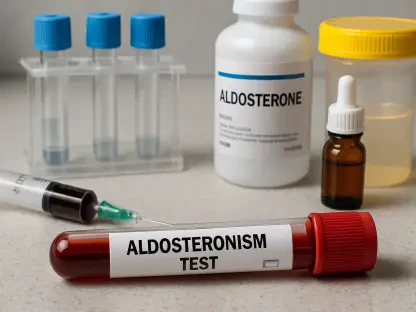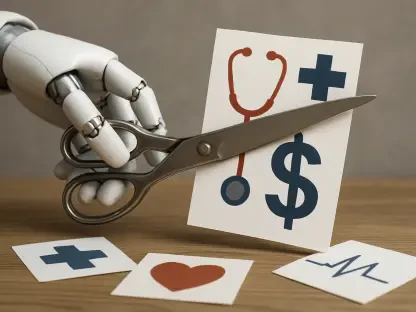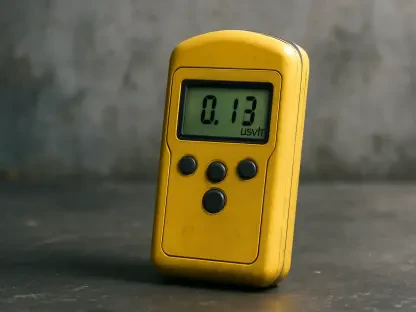James Maitland is an expert in robotics and IoT applications in medicine, driven by a strong passion for leveraging technology to advance healthcare solutions. He has extensive knowledge on topics like trade policies and their impact on medtech companies. In this interview, we delve into the effects of tariffs on the medical technology industry, exploring strategies for adaptation, financial impacts, and the broader trade dynamics.
How are medtech companies planning to manage the impact of tariffs on their supply chains?
Medtech companies are actively seeking ways to manage the disruption caused by tariffs on their supply chains. Many are considering re-shoring or moving manufacturing facilities to different locations that are less affected by tariffs. This geographical reorganization helps in minimizing tariff costs but also ensures that supply chains are more resilient against geopolitical tensions. Balancing the reorganization for minimizing tariffs while keeping production costs manageable is crucial for these companies.
Can you discuss the recent financial performance of companies like GE Healthcare and Intuitive Surgical amid tariff concerns?
The tariffs have undoubtedly impacted the financial performance of big names like GE Healthcare and Intuitive Surgical. Stock prices have shown volatility as investors respond to the uncertainty. For instance, GE Healthcare has planned to address tariff impacts in their upcoming earnings calls, highlighting this issue’s importance. While the specific financial impact varies, the overall sentiment is cautious as these companies navigate the complexities brought by the tariffs.
How do tariffs affect the medtech industry’s global trade dynamics?
Tariffs introduce a significant element of uncertainty to global trade dynamics in the medtech industry. China’s Ministry of Commerce, for example, has initiated investigations that could lead to additional barriers for companies like GE Healthcare. This can affect global trade flows and necessitate strategic adjustments by medtech companies to maintain their competitive edge and market presence.
What is your perspective on Trump’s recent announcement regarding reciprocal tariffs?
The 90-day pause announced by President Trump on most reciprocal tariffs is a short-term relief for many businesses, including those in the medtech industry. However, it keeps the uncertainties alive as the possibility of tariffs remains. The cumulative effect of raising duties to 145% on imports from China is particularly concerning as it exponentially increases the costs for firms reliant on Chinese imports.
How are smaller medtech companies like Masimo and Enovis dealing with the potential tariff impacts?
Smaller medtech companies like Masimo and Enovis have voiced significant concerns about the financial repercussions of new tariffs during their earnings calls. For these companies, the financial impact could be substantial, given their relatively smaller scale and higher sensitivity to cost fluctuations. Products sourced from Mexico, for instance, are particularly vulnerable to tariffs, adding to the financial strain.
Intuitive Surgical mentioned the potential material effect of tariffs on their Mexican-manufactured instruments. Can you elaborate on this?
Intuitive Surgical has highlighted that a significant portion of their instruments are manufactured in Mexico, which might be subject to tariffs. Despite this, the company has not yet factored this impact into its profit forecast, possibly waiting for further clarity on trade policies. Analysts like Robbie Marcus have noted that Mexico is temporarily excluded from the reciprocal tariffs list, offering some respite, but a long-term strategy is essential.
What measures are leading analysts suggesting to mitigate the impact of tariffs on medtech companies?
Leading analysts suggest various mitigation measures for medtech companies facing tariffs. Shagun Singh from RBC Capital Markets has pointed out that while tariffs present additional challenges, companies can offset their exposure through strategic moves like diversifying their supply chains or adjusting pricing strategies. The effects are expected to become visible in third-quarter results and beyond, making proactive adaptations essential.
How are healthcare organizations like AdvaMed working to protect the medtech industry from tariffs?
Organizations such as AdvaMed are actively lobbying for exemptions for medical devices and critical supplies from tariffs. They aim to work closely with the administration to highlight the industry’s unique role and the potential adverse impacts of tariffs. Scott Whitaker, AdvaMed’s CEO, hopes for a “zero for zero” tariff outcome to protect the medtech industry through these efforts.
Do you have any advice for our readers?
In today’s rapidly changing trade environment, staying informed and adaptable is key. Companies should continuously evaluate their supply chains, engage with policymakers, and pursue proactive strategies to mitigate risks. Awareness and agility in response to these challenges will be vital for sustaining growth and innovation in the broader medtech field.









